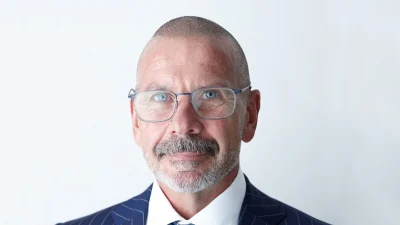PolicyLink gets wild about Africa
PolicyLink founder Bernard Kelly jetted off last week to open an office in South Africa. It will trade in life insurance policies and is expected to generate turnover of about $260 million — or one billion rand — in its first year.
Chief operating officer Wayne Rogers says this is more than the $200-$250 million PolicyLink should generate this year in Australia, where it has cornered 98 per cent of the secondary market for policies.
He says PolicyLink has formed an alliance with South Africa's second largest insurance group, Sanlam, and expects to sign up other major life companies shortly. Various deals with institutional buyers are also in the offing.
According to Rogers, South Africa's secondary market for life policies is extremely fragmented and far less sophisticated than Australia's.
Nonetheless, the market is larger because there are more endowment policies per head, and more stock available for purchase.
Rogers says the policies bought in South Africa will not be sold in Australia, despite huge unsatisfied demand here. South Africa's foreign exchange regulations make this too difficult and hedging against its more volatile currency - the rand - is costly.
The South African office, to be based in Cape Town, will employ about 25 to 50 people.
In Australia, PolicyLink buys whole of life and endowment policies from those who need the cash or who may no longer need life cover, paying them 5-10 per cent more than the surrender value .
These policies are then sold to investors who are then entittled to their benefits.
DIY superannuation investors can, for example, earn a return of between 7.5-8 per cent a year on these policies. Some have had an added windfall from demutualisation.
The policies are considered safe because they carry guaranteed returns. "The only risk is that the life company could go in," says Rogers.
Life companies, who make money from the assets under their administration, benefit because the policies remain in force. At the same time, their administration costs should fall because the contact with customers is reduced.
Rogers adds that experience at MLC has shown that about 35 per cent of those who sold their policies re-invested in *other MLC products.
Recommended for you
The exit of as many as 1,600 advisers as a result of the education requirements will fundamentally redefine adviser capacity, Padua Wealth Data says, and leave clients facing longer turnaround times and reduced access to advice.
WT Financial managing director Keith Cullen has become the latest advice licensee to describe how artificial intelligence is transforming its business as well as plans for two further Hubcos.
ASIC has temporarily suspended the AFSL of a Newcastle-based advice firm after discovering it had unknowingly provided financial services for two years without a key person.
The Financial Advice Association Australia’s Advice Academy has formally launched, assisting Professional Year candidates and supervisors.










